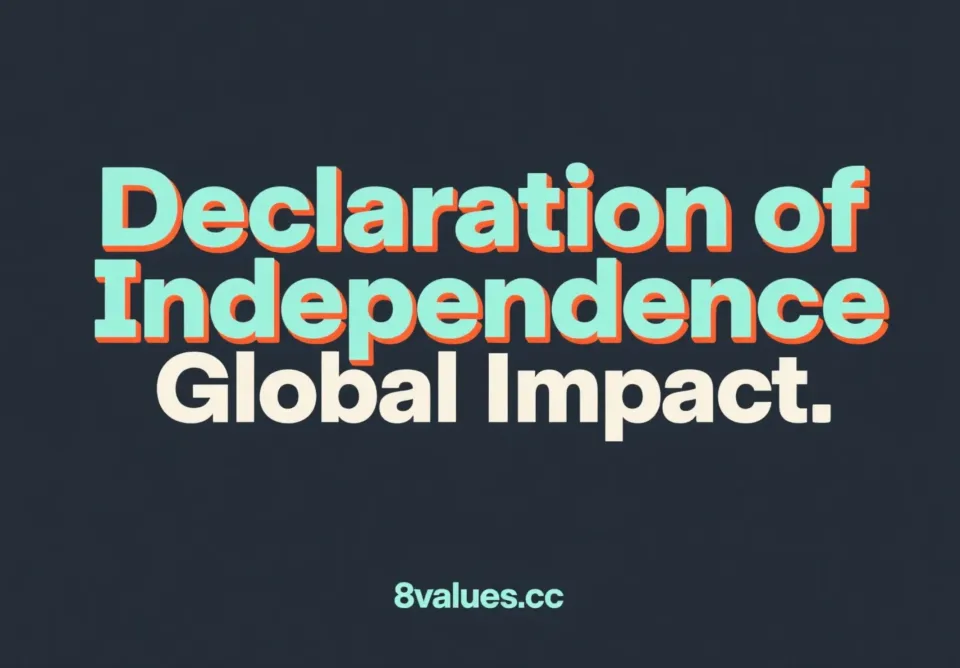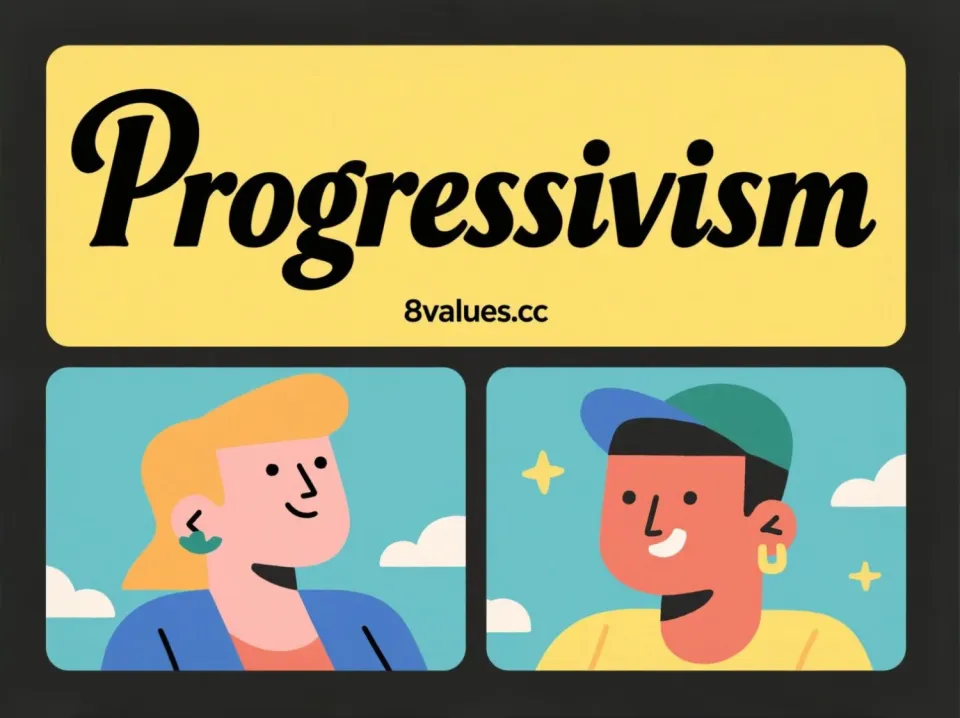The global echo of the Declaration of Independence: Inspiring the French Revolution and the wave of international independence
The Declaration of Independence is one of the most important founding instruments in the United States. A deep discussion on how this document transcends American borders and triggers the "era of democratic revolution" on a global scale, reveals the French Revolution, the Haitian Revolution, and the independence movement in Latin America, and how to continue to shape modern political ideology through its core idea of equality and sovereignty in the people.
On July 4, 1776, the Second Continental Congress formally approved the Declaration of Independence in Philadelphia. This document declares that the political ties between the thirteen North American colonies and the Kingdom of Great Britain were completely lifted and they became "free and independent countries." Although the Declaration of Independence was originally intended to provide a reasonable explanation for the colonies' separation from Britain, the political philosophical ideas it elaborated, such as "all men are created equal", quickly became a transformative political philosophy document with global influence.
In the first decades of the Declaration of Independence, it played a role primarily as a formal proclamation for the birth of a new country. Historians call the American Revolution the beginning of the "age of democratic revolutions" and the Declaration of Independence was the first major impact of this global movement.
The philosophical core and international status of the Declaration of Independence
The Declaration of Independence is not intended to put forward original principles or emotions, but to express the "voice of the Americans." The core idea of the manifesto was deeply influenced by Enlightenment thinkers such as John Locke , who was called "one of the three greatest men of all time."
In the preamble, the Declaration elaborates on a universal set of political philosophy, that is, we believe that the following truths are self-evident: all are born equal , and the Creator gives them several unalienable rights , including the right to life, the right to freedom and the pursuit of happiness.
To protect these rights, the government is established among the people, and the legitimate power of the government comes from the consent of the governed . Once any form of government undermines these goals, the people have the right to change or abolish it and to establish a new government to maximize the safety and happiness of the people.
Diplomatic announcement to the international community
The Declaration of Independence is not only a domestic political mobilization, but also a diplomatic statement facing the world. By issuing the Declaration of Independence, the colonies formally cut off their political ties with Britain, making it possible for the United States to be recognized by friendly foreign governments as a sovereign state .
According to historian David Armitage, one of the core purposes of the declaration is to declare the international legal sovereignty of the United States. Members of the Continental Congress at that time often referred to the international law book "The Law of Nations ", which author Emmer de Vattel, believed that independence was a fundamental feature of sovereign states.
- Seeking external support: Declaration of independence is a prerequisite for alliance with foreign countries. Without formal independence, foreign intervention would be equivalent to interference in the British civil war.
- Recognition of formal recognition: The publication of the Declaration of Independence allowed the United States to obtain formal recognition from foreign countries, such as the signing of the Treaty of Alliance with France in 1778. The Netherlands recognized the independence of the United States in 1782, and although Spain joined the war in 1779, it was not until the Treaty of Paris in 1783 that the United States was officially recognized as a sovereign state.
Revelation of Europe: The French Revolution and Russian Trends
The success of the American Revolution and its philosophical basis of the Declaration of Independence quickly triggered a chain reaction around the world, especially in Europe.
- French Revolution: Following the American Revolution, revolutions broke out in France, Haiti and South America. Many leaders of the French Revolution expressed their admiration for the Declaration of Independence. The content and inspiration of France's Declaration of the Rights of Man and of the Citizen (1789) was largely derived from the ideals of the American Revolution. The Marquis of Lafayette of France worked closely with Thomas Jefferson in Paris to draft a key draft of the French Declaration.
- Other Europe: The Manifesto of the Province of Flanders, Belgium (1790) was the first foreign version to imitate the American Declaration of Independence. In addition, the declaration also had an impact on Tsarist Russia, especially on the Decembrist revolt and other Russian thinkers. In Ireland under British rule, the declaration also won many supporters.
The impact of the Declaration of Independence on the international independence movement
The Declaration of Independence created a new political style—announced the birth of a new country through formal announcements. Its format and wording were referenced or directly adopted in subsequent independence movements in multiple countries.
Latin America and the Caribbean
The Declaration of Independence had a significant and direct impact on the independence movement in Latin America .
- Haitian Independence: The Declaration of Independence, published in 1804, after the victory of the Haitian Revolution, clearly imitated the American text.
- South America: South American countries such as the United Provinces of New Granada (1811), Argentina (1816), Chile (1818), Peru (1821), Bolivia (1825), Uruguay (1825), Ecuador (1830), and Colombia (1831) followed the American declaration when declaring independence.
- Central America: Central American countries such as Costa Rica, El Salvador, Guatemala, Honduras and Nicaragua all issued the Declaration of Independence in 1821, which was directly inspired by the United States Declaration of Independence.
Declaration from Texas to Vietnam follows the imitation of
In addition to Latin America, the declaration of independence for the rest of the world also adopts the model of the US Declaration of Independence:
- North America split and new countries:
- Both the Republic of Texas (1836) and the Republic of California (1836) used the American Declaration of Independence as model copies when they declared independence from Mexico.
- The Confederate States of America also mentioned the Declaration of Independence in its Declaration of Disengagement from 1860 to 1861, although they deliberately omitted core statements such as "everyone is born equal" and "the government needs the consent of the ruled."
- Other Global Independence Statements:
- Liberia (1847), Hungary (1849), Czechoslovakia (drafted in Washington in 1918).
- Even in the 20th century, the Vietnam Declaration of Independence published by Ho Chi Minh in 1945, the impact on the American text can be seen.
- The Declaration of Independence issued by the white regime of Rhodesia in 1965 is also based on the American version, but also omits the words "everyone is born equal" and "the government needs the consent of the people" to adapt to the political reality of its ethnic minority rule.
The declarations of these countries and political entities formally inherit the tradition of the United States' announcement of the birth of a new country, but their ideology and specific practices make choices based on their respective political needs.
The Declaration of Independence Connects to the Global Social Justice Movement
Although the original accusation of the Declaration of Independence was the tyranny of King George III of Britain and a series of injustice, over time, the concept of equality and inalienable rights in its preface exceeded its specific historical context and became a moral guide to social justice movements in the United States and even the global.
Continuing domestic impact and global response
Abraham Lincoln took the Declaration of Independence to a new level. He believes that the declaration is the "moral standard" of the founding of the United States and the guiding principle that should be followed in interpreting the United States Constitution. In the Gettysburg Address in 1863, Lincoln began by citing the year 1776 as the cornerstone of the founding of the nation, emphasizing that the United States was a new country “bred into freedom and committed to the belief that everyone is born equal.”
This refocus on the principle of equality has made it the banner of the movement for wider rights:
- Women's Rights Movement: In 1848, the Seneca Falls Convention advocates wrote the Declaration of Sentiments in the Declaration of Independence, which explicitly demanded social and political equality, and declared that "all men and women are created equal."
- Civil Rights Movement: In the 1960s, Martin Luther King Jr. quoted the creed “We believe these truths are self-evident: everyone is born equal” in his famous speech “I Have a Dream ”, calling on the state to practice its founding commitments and promote racial equality.
- LGBTQ+ Rights Movement: In 1978, activist Harvey Milk gave a speech at the Gay Pride Celebration in San Francisco, citing the Declaration of Independence, emphasizing that the inalienable rights established in it apply to all and should not be hindered by sexual orientation.
These historical conflicts of thought and evolution of ideology are at the heart of all the results ideology focuses on. These core concepts can be further explored through other political tests and understand how these political philosophy that spans time and space influences our perceptions of government and individual rights.
The lasting glory of the Declaration of Independence
The Declaration of Independence, as a programmatic document, is indescribable. It is not only the basis for the United States to break away from British rule in law, but also as a transformative political philosophy document, it proposes universal values such as the consent of the ruled to peace .
This document is solemnly declared:
"We, the representatives of the United States of America, convened a general meeting to appeal to the world's highest justice for the justice of our people. In the name of the upright and kind public opinion of each colony, and to solemnly promulgate and declare, unite the colonies and have the right to be free and independent countries ."
And ended with a pledge to "mutually pledge to each other our Lives, our Fortunes and our sacred Honor" , marking the beginning of American political experiments.
Although most of the signatories of the Declaration of Independence had slaves, and the ideal of "everyone is born equal" proposed by him was greatly contradicted with the reality at that time, this statement, considered one of the most important and famous discourses in world history, became the common vision of the subsequent social reform movement in the United States.
This document proves the power of rhetoric and the firmness of political will, and continues to inspire the global democratic and liberal movement with its natural rights doctrine and sovereignty in the people's mind . Through tools like the 8values Political Values Propensity Test , we can better position and understand the continuation and evolution of these political ideas across national boundaries in modern society.






